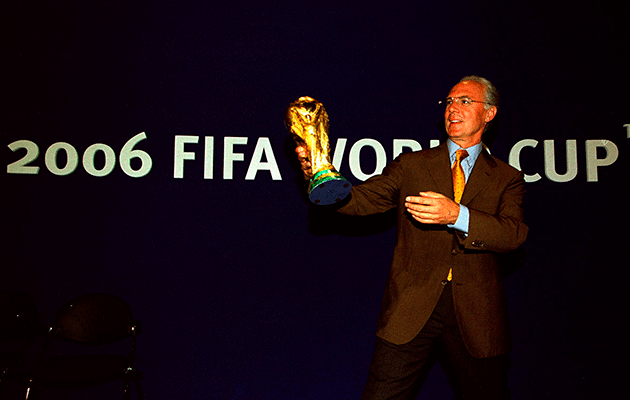A report by a law firm into the 2006 World Cup corruption allegations said it had not found conclusive evidence of vote-buying by the German bid team, but nor would it rule out the possibility that bribery had taken place.
“We found no evidence of vote-buying but we also cannot rule it out,” said Christian Duve of Freshfields, the firm hired by the German football federation (DFB) to investigate the allegations first made by the Der Spiegel magazine last October.
Duve said he could not rule out the possibility of bribery completely, however, because a number of witnesses had not cooperated with the investigation and certain relevant documents had disappeared.
The affair, prompted by a suspect payment of 6.7 million euros from the DFB to FIFA back in 2005, has already brought about the resignation of the DFB president, Wolfgang Niersbach, and also resulted in a criminal investigation being launched by German police.
The DFB had said that the payment was a return of a loan from former Adidas chief Robert Louis-Dreyfus, while Der Spiegel magazine said it was allegedly used to buy votes.
Duve said the 6.7 million euro payment from the DFB had indeed been transferred to FIFA in 2005 but was not intended for the opening ceremony gala as was originally claimed in documents.
“It was immediately transferred on to an account of Louis-Dreyfus,” Duve said.
Sports equipment maker Adidas, a long-time DFB sponsor and friend of German football, has said it was unaware of any such payment.
The report also identified a payment from then World Cup 2006 organising chief Franz Beckenbauer to scaffolding company Kemco in Qatar, the owner of which was disgraced former FIFA official Mohammed Bin Hammam.
“They landed somewhere in Qatar, this is under the influence of Bin Hammam. But anything beyond that is speculation. We had the task of presenting the facts,” said Duve, who added that some documents were missing from the DFB headquarters.
“You could connect the payment with the FIFA re-election of Blatter or for the 2006 vote but that would be pure speculation.”
Freshfields revealed it faced several “hurdles” in conducting its investigation, including missing electronic information, deleted emails, files that weren’t accessible and people who declined to talk with its investigators, including former FIFA president Sepp Blatter.
“Because of these restrictions, we cannot present a conclusive picture today,” Freshfields said.
FIFA said it welcomed Duve’s report carefully and incorporate the results into its own current investigation.
The statement read: “FIFA welcomes the report by the German Football Association (DFB) on its investigation into Germany’s bid for the 2006 FIFA World Cup™. FIFA will review the report carefully and factor the findings into its ongoing internal investigation of this matter.
“FIFA shared information with the DFB to assist with its investigation and, in turn, received information from the DFB that is helpful to FIFA’s own investigation. However, many questions still remain to be answered. FIFA’s investigation has been hampered by the fact that key witnesses were not willing to answer questions or provide documents.
“FIFA maintains its victim status in all investigations and continues to cooperate with the Swiss and German authorities, who are in the best position to obtain all of the information necessary to understanding the facts of this matter.”







